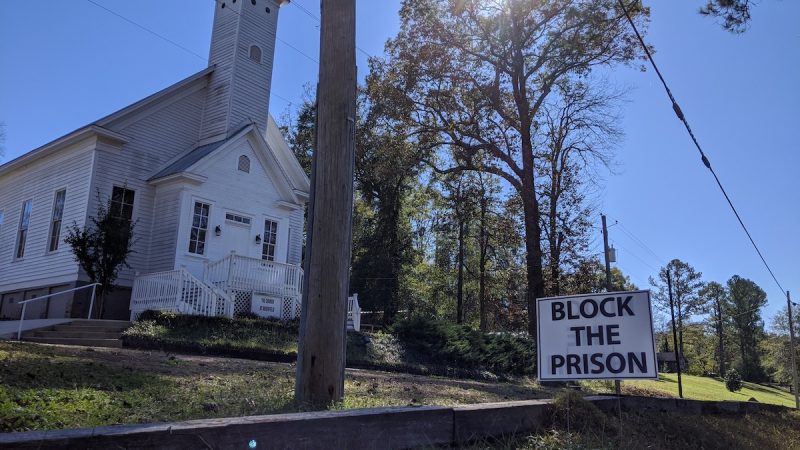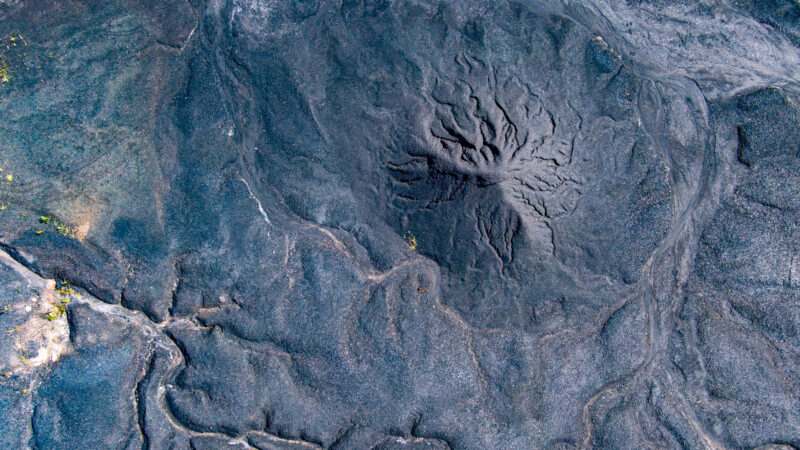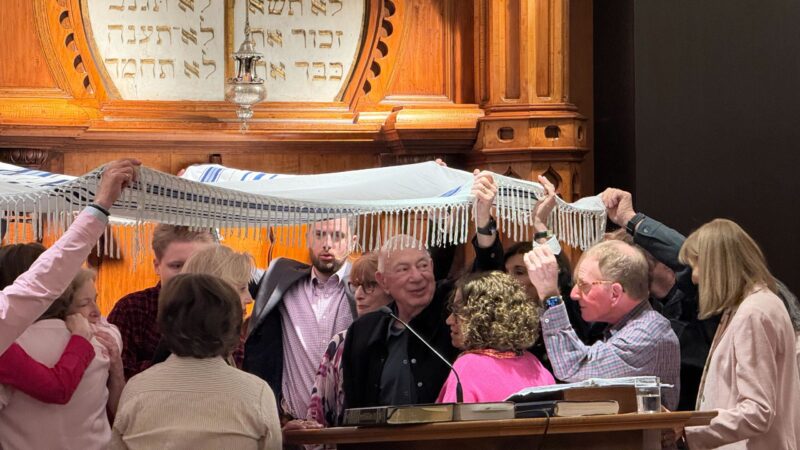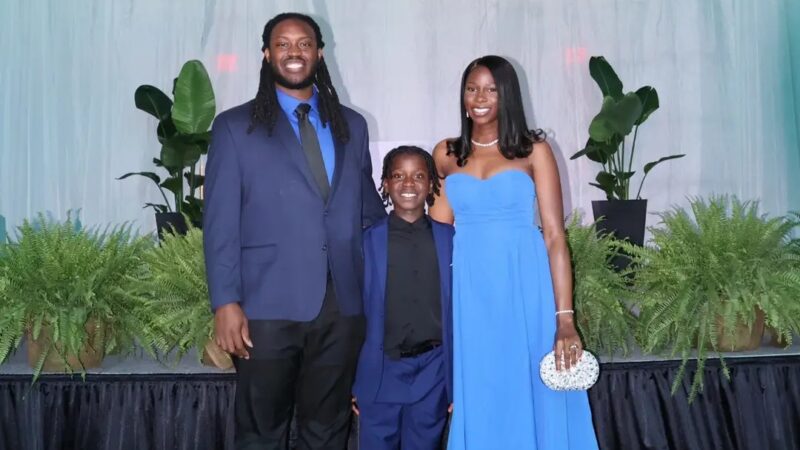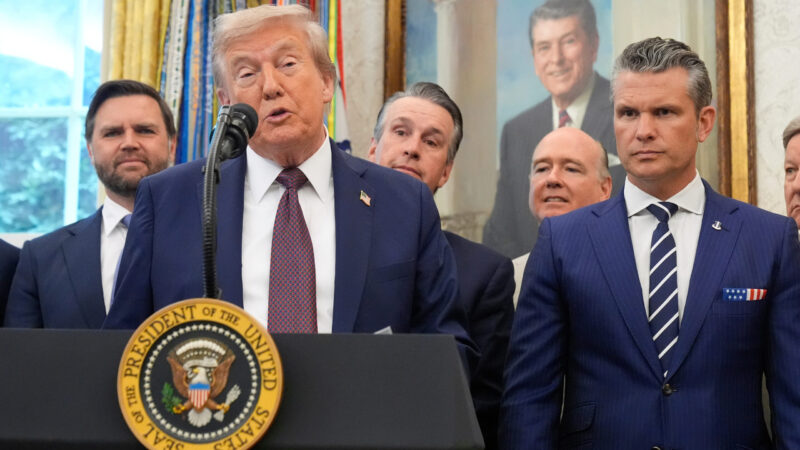Lawsuit aims to block Alabama from using COVID relief funds on prison project
A sign in Brierfield, Ala. opposing prison construction previously slated for the town. Photo taken Nov. 20, 2020.
More than 60 men incarcerated in Alabama filed a lawsuit on Monday against the U.S. Department of the Treasury, asking a federal judge to restrict the state from spending $400 million of its COVID-19 pandemic relief money on new prisons.
The move comes months after the Department of the Treasury issued guidance saying prison construction is a “generally ineligible” use of American Rescue Plan (ARP) funds.
The plaintiffs claim in the lawsuit that new buildings will not improve prison conditions and do not help communities recover from the pandemic. They also allege that Treasury officials are breaking the law by refusing to intervene and are asking a federal judge to step in.
“The Treasury has chosen to remain silent as Alabama defies the purpose of ARP by misappropriating approximately 20% of funds granted to Alabama … for prison construction,” Richard Rice, the lead attorney on the case, said in a statement.
Alabama officials previously said the rules did not affect their plans because the ARP funds were making up for lost revenue needed for prison construction.
They claim new correctional facilities will help alleviate widespread violence, overcrowding and understaffing in Alabama’s prisons for men, the subject of an ongoing lawsuit filed by the U.S. Department of Justice.
Several other states, including Mississippi and Louisiana, have also discussed using COVID relief money to build jails and prisons, though Alabama’s plans are among the most expensive.
The state will spend roughly $1.3 billion to build two mega prisons for men, combining the $400 million in ARP funds with roughly $500 million in bonds, which are expected to finalize Tuesday, plus additional money from the state’s general fund.
The lawsuit filed Monday is the latest attempt to halt the project. In recent weeks, incarcerated people and advocates have filed separate lawsuits and issued statements opposing the project.
To hear more about Alabama’s plan to build new prisons, check out WBHM’s podcast Deliberate Indifference.
This story was produced by the Gulf States Newsroom, a collaboration among Mississippi Public Broadcasting, WBHM in Alabama and WWNO and WRKF in Louisiana and NPR.
Auburn fires coach Hugh Freeze following 12th loss in his last 15 SEC games
The 56-year-old Freeze failed to fix Auburn’s offensive issues in three years on the Plains, scoring 24 or fewer points in 17 of his 22 league games. He also ended up on the wrong end of too many close matchups, including twice this season thanks partly to questionable calls.
In a ‘disheartening’ era, the nation’s former top mining regulator speaks out
Joe Pizarchik, who led the federal Office of Surface Mining Reclamation and Enforcement from 2009 to 2017, says Alabama’s move in the wake of a fatal 2024 home explosion increases risks to residents living atop “gassy” coal mines.
‘It’s like feeling the arms of your creator just wrapped around you’: a visit to a special healing Shabbat
Members of Temple Emanu-El in Birmingham gathered recently for their traditional Friday Shabbat service. But this particular service was different, as could be seen by all the people dressed in their finest pink.
Space Command is coming to Huntsville. What might that mean for first-time homebuyers
While Huntsville has been a more affordable market than other growing cities, what’s it been like for those looking for their first home?
Colorado says relocation of Space Command to Alabama is ‘punishment’ for mail-in voting
The litigation announced by Colorado Attorney General Phil Weiser asks a federal judge to block the move as unconstitutional.
Breaking down Alabama’s CHOOSE Act
It’s been a year since Alabama legislators passed the CHOOSE Act allowing families to apply for state funds to use towards homeschool expenses and tuition for participating private schools. The Alabama Daily News’ education reporter Trisha Powell Crain has been diving into how the funds are being used. WBHM’s Andrew Gelderman sat down with her to talk about what we’re seeing so far.

